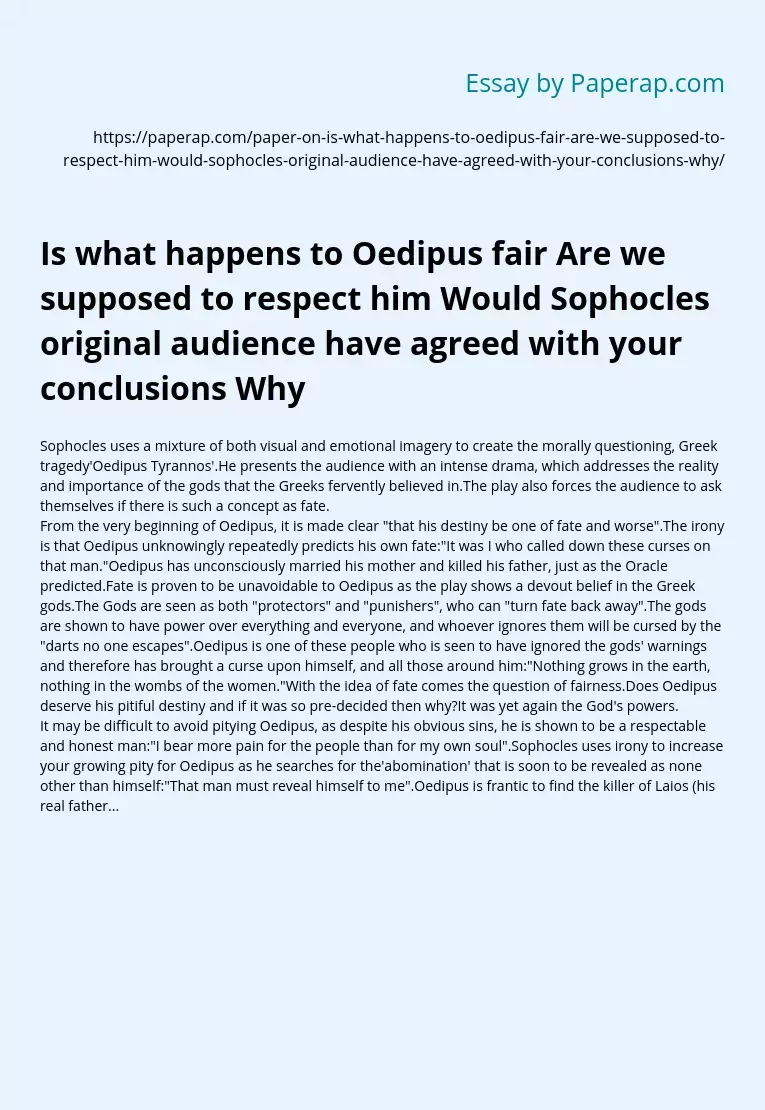Modern vs Historical Views on Oedipus
Sophocles uses a mixture of both visual and emotional imagery to create the morally questioning, Greek tragedy’Oedipus Tyrannos’.He presents the audience with an intense drama, which addresses the reality and importance of the gods that the Greeks fervently believed in. The play also forces the audience to ask themselves if there is such a concept as fate.
From the very beginning of Oedipus, it is made clear “that his destiny be one of fate and worse”.The irony is that Oedipus unknowingly repeatedly predicts his own fate:”It was I who called down these curses on that man.
”Oedipus has unconsciously married his mother and killed his father, just as the Oracle predicted.Fate is proven to be unavoidable to Oedipus as the play shows a devout belief in the Greek gods.The Gods are seen as both “protectors” and “punishers”, who can “turn fate back away”.
The gods are shown to have power over everything and everyone, and whoever ignores them will be cursed by the “darts no one escapes”.
Oedipus is one of these people who is seen to have ignored the gods’ warnings and therefore has brought a curse upon himself, and all those around him:”Nothing grows in the earth, nothing in the wombs of the women.”With the idea of fate comes the question of fairness. Does Oedipus deserve his pitiful destiny and if it was so pre-decided then why? It was yet again the God’s powers.
Modern vs Historical Views on Oedipus. (2019, Apr 20). Retrieved from https://paperap.com/paper-on-is-what-happens-to-oedipus-fair-are-we-supposed-to-respect-him-would-sophocles-original-audience-have-agreed-with-your-conclusions-why/
